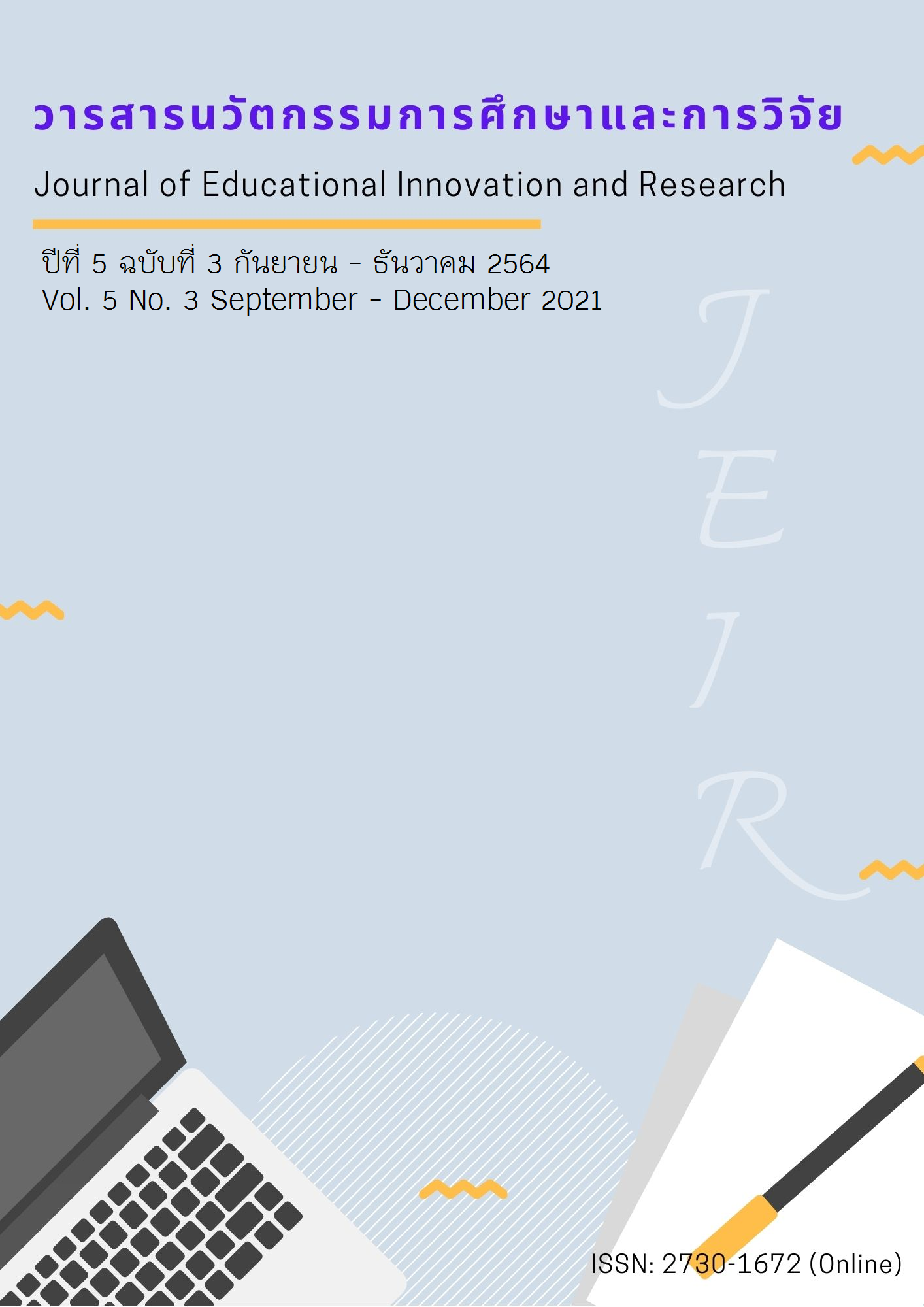การบริหารโครงการ โรงเรียนรักษาศีล 5 เชิงคุณภาพ ครอบครัวอบอุ่น ด้วย 7 กิจวัตรความดี
Main Article Content
บทคัดย่อ
การบริหารโครงการโรงเรียนรักษาศีล 5 เชิงคุณภาพ ครอบครัวอบอุ่น ด้วย 7 กิจวัตรความดี มุ่งเน้นศึกษาประเด็นหลักคือ แนวคิดการบริหารโครงการ แนวคิดโครงการโรงเรียนรักษาศีล 5 เชิงคุณภาพ ครอบครัวอบอุ่นและกิจกรรม 7 กิจวัตรความดี มีรูปแบบ กิจกรรมและตัวชี้วัดความสำเร็จที่สอดคล้องกับแผนพัฒนาคุณภาพการศึกษาของชาติ และสนับสนุน ส่งเสริม พัฒนาทักษะการเรียนรู้ในศตวรรษที่ 21 อย่างไรก็ตาม 7 กิจวัตรความดี เป็นเพียงกรอบแนวทางปฏิบัติที่มีความยืดหยุ่น ผู้บริหารสถานศึกษาและคุณครูสามารถวางแผนออกแบบกิจกรรมให้เหมาะสมกับบริบทของโรงเรียนได้ และหากมีการดำเนินการและปรับปรุงอย่างต่อเนื่องจนเป็นระบบที่ยั่งยืน ก็จะเป็นการสร้างสภาพแวดล้อมสังคมที่ดีให้เกิดขึ้นในสถานศึกษา ที่บ้าน และส่งผลไปถึงชุมชนในที่สุด โครงการโรงเรียนรักษาศีล 5 เชิงคุณภาพ ครอบครัวอบอุ่น มีวัตถุประสงค์ คือ นำธรรมะไปสู่ภาคปฏิบัติ โดยเฉพาะอย่างยิ่งหลักศีล 5 ครอบครัวอบอุ่น สังคมสงบสุข เกิดความปรองดองสมานฉันท์ เด็กและเยาวชนห่างไกลยาเสพติดและอบายมุขต่างๆ
Article Details
เอกสารอ้างอิง
โครงการรักษาศีล 5. (2563). โครงการโรงเรียนรักษาศีล 5 เชิงคุณภาพ ครอบครัวอบอุ่น. สืบค้นเมื่อ 15 พฤศจิกายน 2563, จาก http://https://www.sila5.com/detail/index2/index
ณรงค์ นันทวรรธนะ. (2547). การบริหารโครงการ. กรุงเทพฯ: ฟิสิกส์เซ็นเตอร์.
ทวีป ศิริรัศมี. (2544). การวางแผนพัฒนาและประเมินโครงการ. กรุงเทพฯ: สำนักงานกองทุนสนับสนุนการวิจัย.
บรูช แอนดี. (2552). เคล็ดลับดี ๆ วิธีการบริหารโครงการ (แปลจาก Manage projects: meet your deadlines and achieve your targets โดยรัชนี อเนกพีระศักดิ์). กรุงเทพฯ: เนชั่นบุ๊คส์.
พระพรหมคุณาภรณ์ (ป. อ. ปยุตฺโต). (2557). พจนานุกรมพุทธศาสตร์ ฉบับประมวลธรรม. (พิมพ์ครั้งที่ 27). กรุงเทพฯ: โรงพิมพ์มหาจุฬาลงกรณราชวิทยาลัย.
มยุรี อนุมานราชธน. (2551). การบริหารโครงการ Project Management. กรุงเทพฯ: ดูมายเบส.
สำนักงานพระพุทธศาสนาแห่งชาติ. (2550). พุทธธรรมเพื่อส่งเสริมเศรษฐกิจ. กรุงเทพฯ: โรงพิมพ์สำนักงานพระพุทธศาสนาแห่งชาติ.
สุพจน์ โกวิทยา. (2548). การบริหารโครงการ. สงขลา: ภาควิชารัฐประศาสนศาสตร์.คณะวิทยาการจัดการ มหาวิทยาลัยสงขลานครินทร์.
สุพจน์ โกสิยะจินดา. (2550). การบริหารโครงการในระบบงานไอที. กรุงเทพฯ: สุวีริยาสาส์น.
สุพาดา ศิริกุตตา และคณะ. (2543). การวางแผนและการบริหารโครงการ. กรุงเทพฯ: Diamond in Business world .
โสมวลี ชยามฤต. (2564). การพัฒนาทรัพยากรมนุษย์เพื่อรองรับยุคดิจิทัลขององค์การภาครัฐและเอกชน. วารสารสหวิทยาการมนุษยศาสตร์และสังคมศาสตร์, 4(1), 38-50.
Chatfield, C. (2007). A short course in project management. Microsoft.
Clarke, A. (1999). A practical use of key success factors to improve theeffectiveness of Project management. International Journal of Project Management.
Damnoen, P. S. et al. (2021). The Development of Student Characteristics in According to the Nawaluk Framework of the Buddhist integration of Buddhapanya Sri Thawarawadee Buddhist College. Asia Pacific Journal of Religions and Cultures, 5(2), 126-135.
Damnoen, P. S., Phumphongkhochasorn, P., Pornpitchanarong, S., & Nanposri, N. (2021). Development of Strategies for the Use of Innovative Information in Education for Secondary Schools under the Office of the Basic Education Commission in the Eastern Region. Turkish Journal of Physiotherapy and Rehabilitation. 32(3), 20483 – 20490.
Meredith, J. R., & Mantel, S. (2006). Project Management a managerial approach. (6 th ed). Asia: John Wiley & Sons.
Nokes, S. (2008). The Definitive Guide to Project Management. FT Press.
Richman, L. (2002). Project management step-by-step. New York: AMACOM.
Songsraboon, R., Thongtao, J., Damnoen, P. S., & Huanjit, P. S. (2021). Course Management Based on Outcome-Based Education (OBE) of Learning by Working in Real Conditions. Turkish Journal of Physiotherapy and Rehabilitation, 32(3), 20491 – 20499.
Tague, N. R. (2005). Plan–Do–Study–Act cycle. The quality toolbox (2nd ed.). Milwaukee: ASQ Quality Press.


